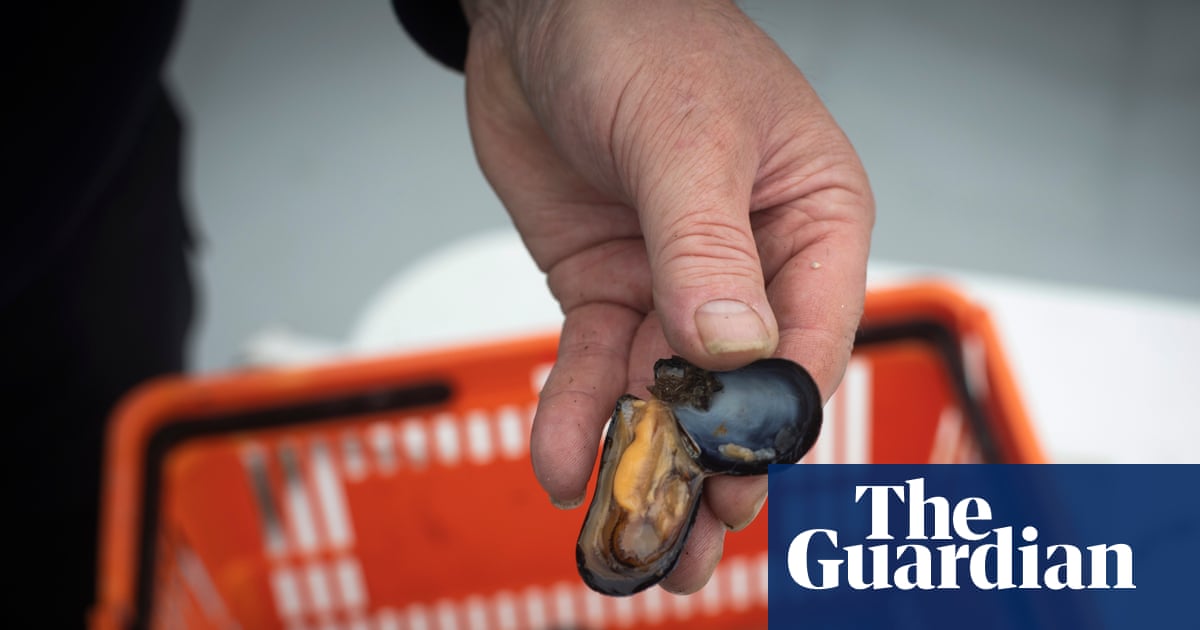
"Our geographical position makes this probably the best place in Britain for producing mussels, he adds, pointing to the boat's screen, where different colours display the areas where several companies are licensed to harvest the shellfish. It's because of the tidal exchange going through the Menai Strait, it gets up to six knots in the middle there, he says. You've got a massive volume of water exchanging both ways, bringing in the food and nutrients the mussels like."
"Over the years, as production increased, the vast majority of the mussels were sent across the Channel to Europe, where diners especially in France, Belgium and the Netherlands tend to eat a lot more shellfish. The UK's shellfish industry is small and specialised, valued before Brexit at less than 12m a year, but one which is crucial for some coastal communities."
Thousands of blue mussels are dredged from the Menai Strait, emptied into a hopper and rinsed aboard vessels that work grounds off Port Penrhyn near Bangor. Strong tidal exchange through the Strait creates high volumes of nutrient-rich water, making the eastern Menai Strait historically the largest mussel farming area in Britain. Mussel farming expanded from the 1960s, employing local families across generations and supplying mainly European markets, notably France, Belgium and the Netherlands. The UK's specialised shellfish sector was valued before Brexit at under £12 million annually and supported coastal communities. Brexit severed most access to the European export market and has effectively ended mussel harvesting in the Menai Strait.
Read at www.theguardian.com
Unable to calculate read time
Collection
[
|
...
]